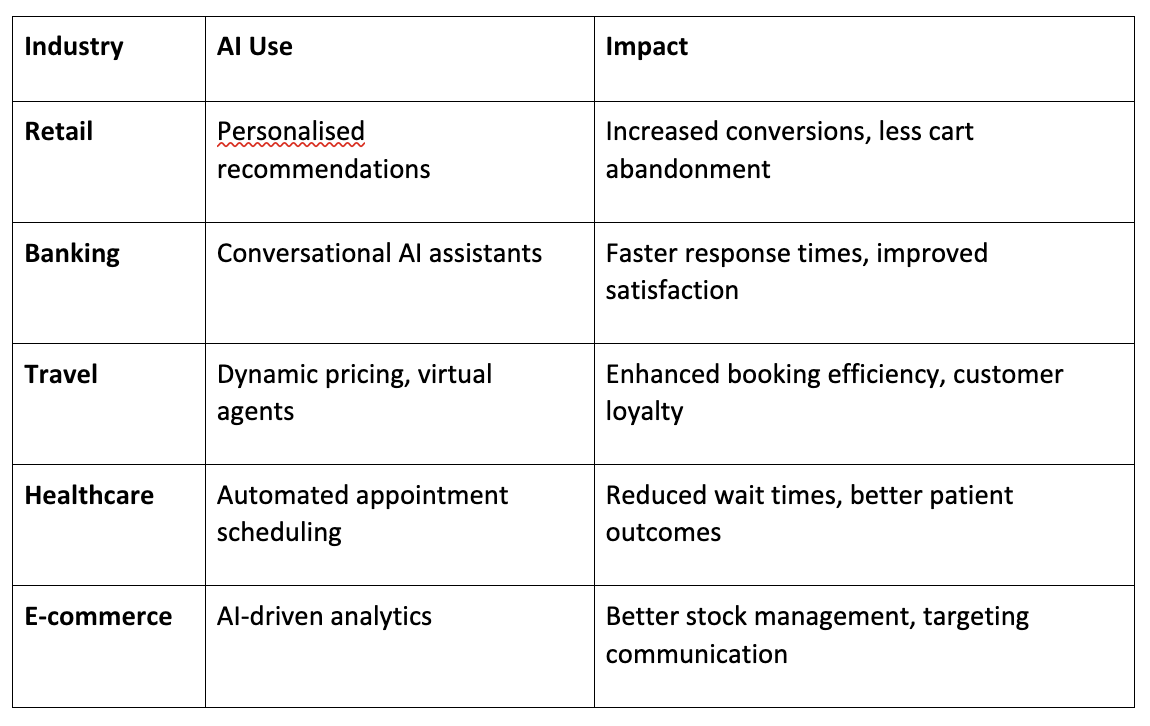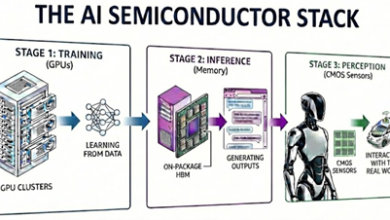
The rise of AI in recent years has proved to be beneficial in the workforce revolution. Today, AI usage is present in almost every function of day-to-day tasks. They help optimize mundane and routine tasks without stopping. These tasks also include helping customers get the best experience when dealing with any brand. Customer experience in the age of technology is transforming the way brands attract and retain consumers.
No longer just a futuristic concept, AI is now at the heart of personalised, seamless, and informed engagements across industries. For the C-suite and business decision-makers in the United States, understanding and harnessing AI’s power is essential not only as a technology gimmick but as a propeller to getting data and improving customer engagement, loyalty, and competitive advantage through personalisation and customisation.
This article explores the vendor-neutral, actionable ways AI is reshaping customer experience, drawing from real-world examples, established frameworks, and relevant analytics.
From Big Data to Smart Decisions
In 2025, customers demand timely, consistent, and personal experiences. With businesses clamouring to stand out from an oversaturated market, what sets a brand apart is how it adapts to rising expectations. This is where AI holds your hand when engaging with customers. They are the best on-the-clock agents that analyse data, automate processes and personalise responses in real-time.
Why AI Is No Longer Optional
The use of AI is crucial in accelerating businesses in terms of customer personalisation. Such is the case for Brinks Home, a sister company of the armoured trucks business, Brinks. With existing databases and information, Brinks Home needs to optimize customer touchpoints across all channels for a unified messaging and branding.
In 2021, when Brinks started implementing AI agents to help customer experience, they increased 9.5% in overall revenue, compared to the previous year, 2020. Here is why AI is no longer optional for business’s optimisation:
- Data-driven personalisation: AI leverages massive datasets to create customer-specific recommendations.
- Always-on availability: Conversational AI (like chatbots) handles routine queries 24/7, ensuring immediate assistance.
- Actionable analytics: AI-powered dashboards surface trends and predictive insights for proactive decision-making.
How AI Improves Customer Experience
As opposed to human effort when working, AI has the power to analyse and process large volumes of data quickly, accurately, and consistently, with minimal mistakes. Taking the human need for resting, eating, and socializing out of the equation, AI is working the routine in the background while its human counterparts need to work on important decision-making.
AI ensures that human workers can provide timely solutions, anticipate and strategize customer expectations, and ultimately foster stronger, more meaningful connections with a business’s target audience.
How does AI help companies improve customer experience?
- Hyper-Personalisation at Scale
AI in customer experience thrives on its ability to analyze buying patterns, preferences, and behaviors. Analysing big data sets may be a hassle for a human, but with machine learning algorithms, they are a breeze.
What next? How should the business proceed? Human intervention in analysing overall customer behaviour came in the decision-making stage. For example, retailers such as Amazon and Shein use AI for customer experience analytics to tailor product recommendations, promotions, and content. Generative AI in customer experience even creates dynamic product descriptions and messaging based on individual consumer histories.
Amazon’s AI-powered recommendation system accounts for up to 35% of the company’s revenue through personalized product suggestions for each visitor. This drives both higher sales and customer satisfaction.
- Customer Service Agent: Conversational AI
AI and chatbots are transforming the customer experience by handling FAQs, order tracking, appointment scheduling, and more, all with human-like sophistication. These bots adapt to natural language and can escalate complex issues to human agents, streamlining operations while preserving empathy.
Bank of America’s “Erica” AI assistant has already handled over 1.5 billion client requests, offering quick, context-sensitive advice on everything from balances to credit management.
- Real-Time, Proactive Support
Agentic AI in customer experience continuously monitors interactions and flags issues before they escalate. AI can anticipate customer needs and offer actionable solutions preemptively through sentiment, context and transaction patterns analysis.
The fashion retailer Motel Rocks integrated Zendesk Advanced AI into its customer service processes. The results were great for their business. 43% of their customer tickets were solved by AI agents, enabling more customers to resolve their own issues without human intervention. Brinks’ AI agents could instantly identify sentiment and intent for each query, allowing speedy triage and priority handling for human workers, which was crucial during peak seasons and helped a 50% reduction in ticket volume and a 9.4% increase in customer satisfaction scores (CSAT).
AI Customer Experience Examples Across Industries
AI technologies are leveraged to streamline operations in a lot of industries. They improve service delivery and create more personalized experiences. From retail to healthcare, the table below highlights key examples of AI use in different sectors.
Frameworks for AI Implementation in Customer Experience
C-suite leaders should approach AI adoption with these frameworks:
Artificial Intelligence for Authentic Experience
Moving forward, AI is expected to handle 95% of all customer interactions, including both voice and text communications. In financial services, 46% of institutions using AI report improvements in customer experience, with nearly 80% planning even more AI investments in CX. Similarly, retailers see tangible results in conversions during a sales peak.
For industry leaders, the message is clear. Customer experience in the age of AI is now a competitive necessity. Businesses that act now to integrate experience AI frameworks will be well-positioned to exceed customer expectations well into the future.





